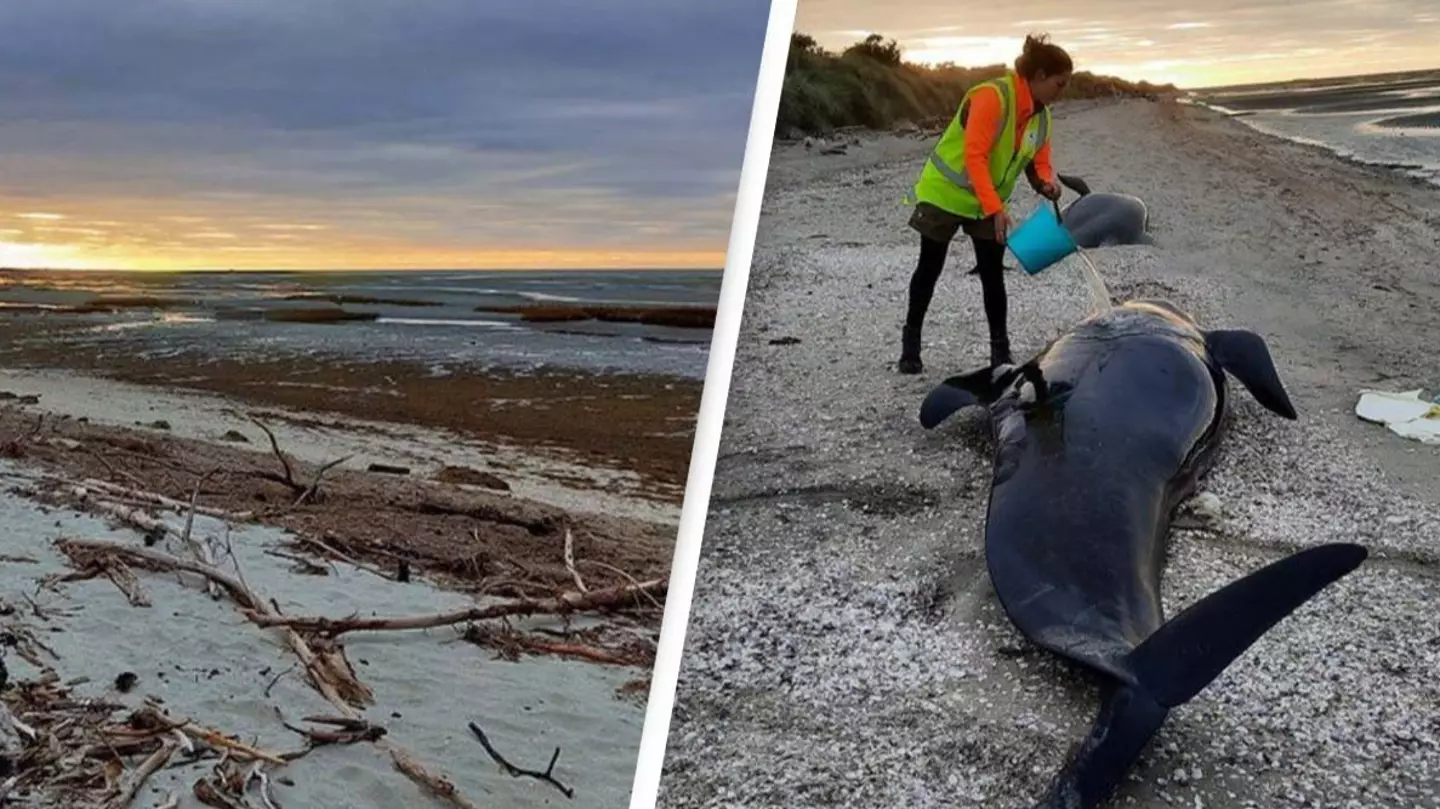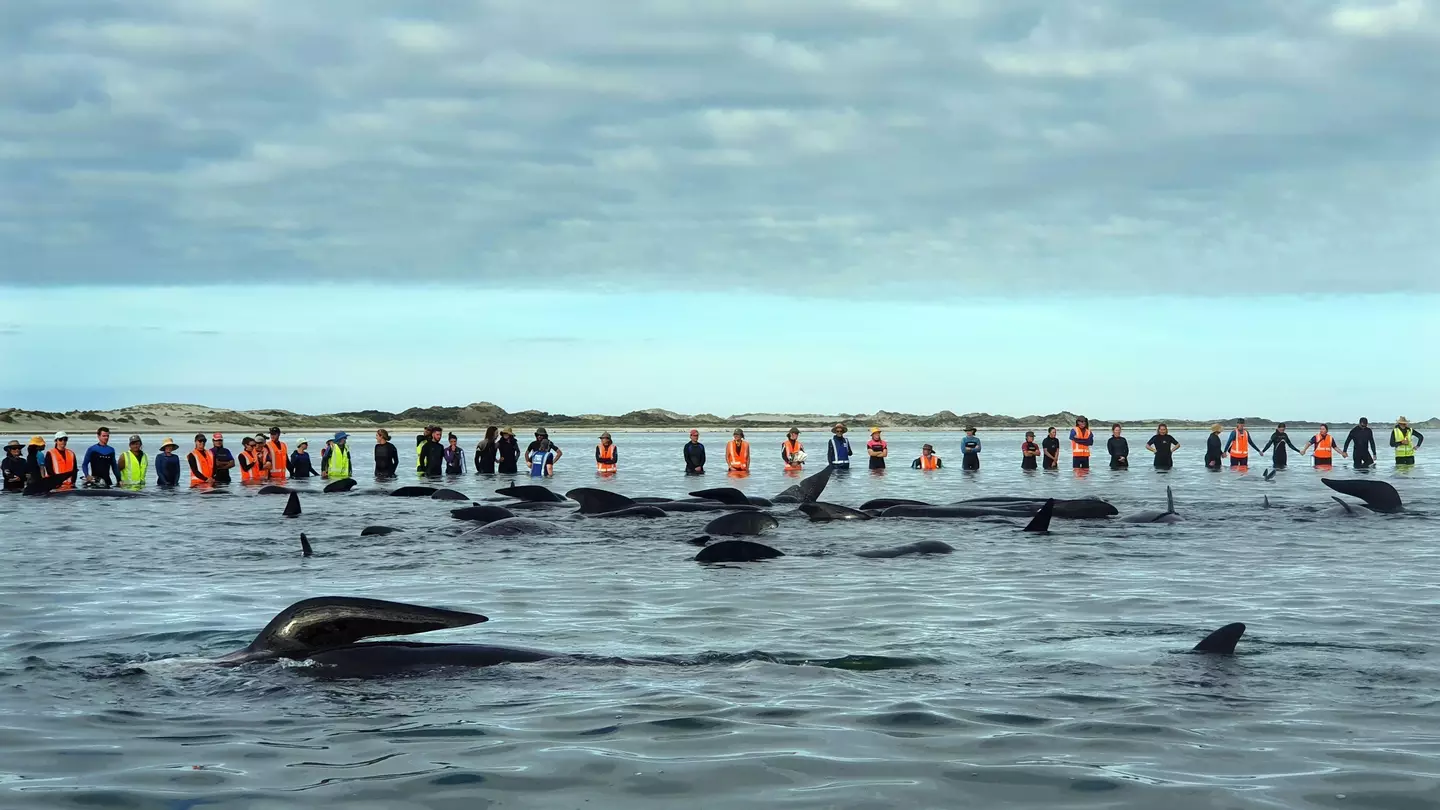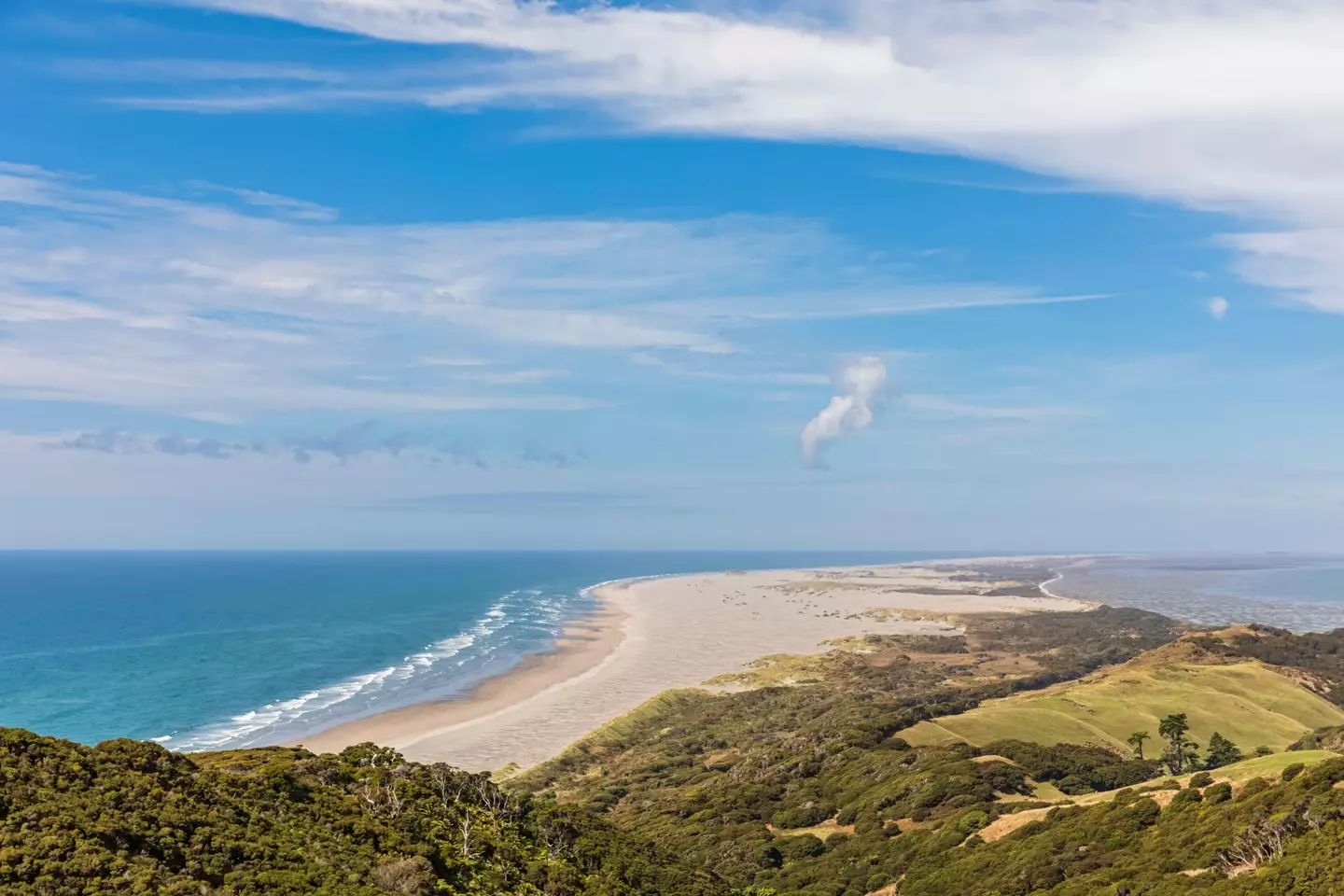
At least 31 pilot whales have died after a pod became stranded on a beach in New Zealand, wildlife officials have said.
The pod was was first spotted on Thursday morning when several whales were seen lying across three kilometres of beach at Farewell Spit on the South Island - an area of coastline notorious for whale deaths.
After rescue efforts that saw volunteers pouring water over the mammals in an attempt to keep them alive until the tide returned, five whales that survived the night on the beach were able to be refloated, however rescuers said two later washed back on to the beach and had to be euthanised.

Advert
In a statement issued prior to the refloating attempt the New Zealand Department of Conservation described the incident as 'heartbreaking,' saying 'our rangers along with Project Jonah senior medics are on-site providing care to the remaining live whales with the hope of refloating.'
Farewell Spit, which is located a the northernmost tip of New Zealand's South Island, has become known as a 'hotspot' for whale strandings over the years, with rescuers having responded to several mass pod strandings.
Just last year, 28 long-finned pilot whales were rescued after a pod of 50 became beached at the spit, with a total of 11 mass strandings recorded over the last 15 years.
The worst stranding came in 2017, when Farewell Spit was seen lined with almost 700 whales that had been beached, of which 250 died.

'It's not an uncommon experience here in Golden Bay, given the area's topography... it's known as one of the stranding hotspots,' said rescuer Dave Winterburn from the Department of Conservation, speaking to the BBC. 'We go through periods when we don't have any, and then we get a couple in a row - that's just the way things go.'
Whale strandings are thought to be a natural phenomenon, though the exact reason for why they occur is not fully understood. Pilot whale are however thought to be particularly prone to getting beached.
Some scientists have suggested that the shallow seabed extending from the Farewell Spit can confuse the sonar navigation systems used by whales, however conservationists have said that proposals to create barriers preventing the animals from washing up are largely 'impractical.'
If you have a story you want to tell, send it to UNILAD via [email protected]
Topics: Animals, New Zealand, World News
